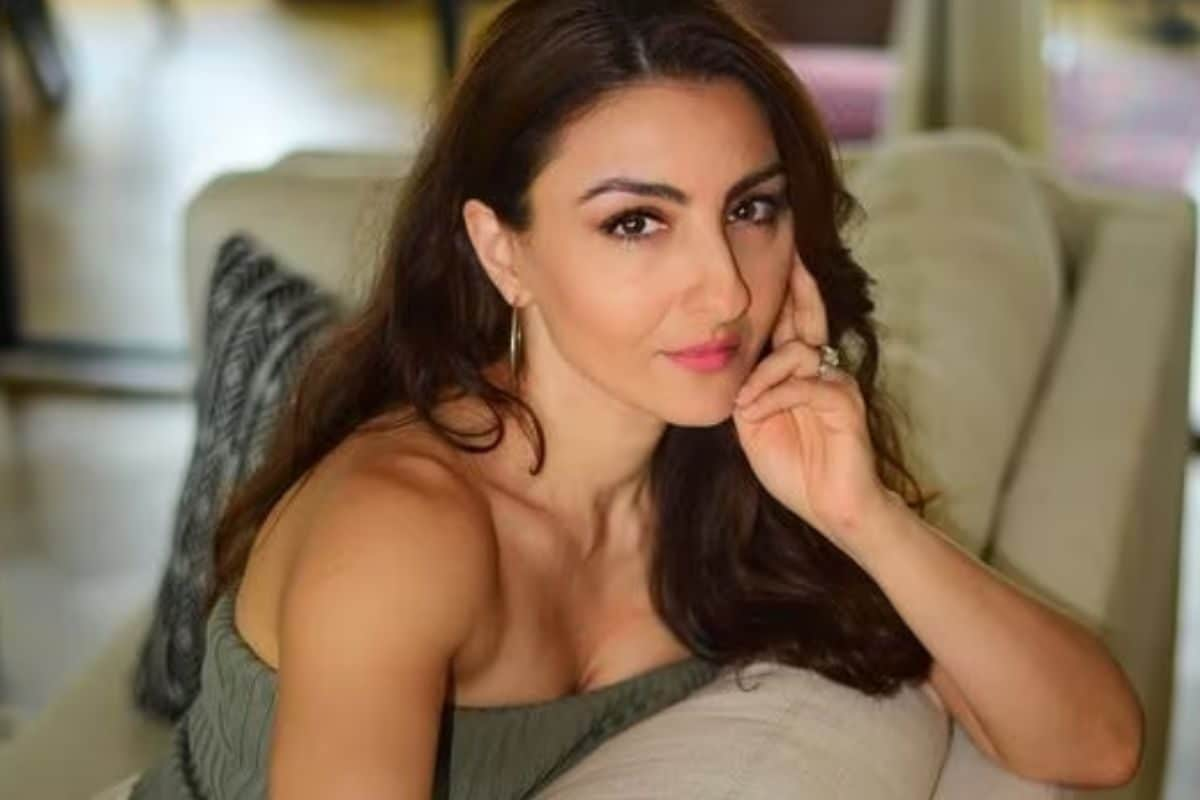His love for writing and his undying spirit for acting set him apart. Dr Tanikella Bharani, the legendary Telugu actor, has always set his standards high with his amazing performance in cinema and theatre. His love towards his work has made him what he is today.
Conferred an honorary doctorate in Literary Arts by SR University, the actor has been nothing but dedicated at his work. As we get an opportunity to speak with him during TNIE’s Hyderabad Dialogues, he certainly makes the hour-long conversation an event to remember. My great-grandfather, Divakarla Tirupati Sastry, left a legacy of literary brilliance in our family.

This heritage influenced my own journey as a writer. During my Intermediate years, a close friend, Devarakonda Narasimha Kumar, who has since passed away, motivated me to write poetry. His encouragement led to my work being published in the popular magazine Andhra Jyothi, edited by the esteemed poet Puranam Subrahmayan Sarma.
Seeing my poetry in print at the age of 23 was a thrilling moment, like winning an award. Despite facing rejections, I persisted and had a breakthrough. Under the pseudonym ‘Bhairava Meena’, I translated a Malayalam story, which was published—this success spurred me to continue writing, branching into stories and sketches.
After completing my B.Com, my mentor Rallapalli Garu (Rallapalli Narasimha Rao), a renowned writer, director, and actor in theatre, encouraged me to write plays. During the Emergency period, I wrote my first play, a political satire titled Gaardhabhaandam (Egg of an Ass), which critiqued socialism.
The play was a success, performed over 100 times across Andhra Pradesh, and earned several awards. This marked the beginning of my journey in theatre. Later, I pursued a PG Diploma in Western theatre techniques, further enriching my craft.
Yes, I played a very prominent role—the villain. For the first performance, I received the Best Actor award for my portrayal of the villain. This success continued into my film career, where I went on to play the role of a villain in more than 100 films.
Somehow, being the villain became my calling in cinema as well. Naturally, being involved in theatre, people began to notice my work as my playlets and plays were receiving awards. One such person was Damaraju Hanumanth Rao, who saw one of my plays and suggested I try my hand at movies.
He took me to Chennai to write my first film, which starred Suman as the hero. He handed me a cassette, emphasising that it was a secret, and told me that we were adapting an English movie into a Telugu one, requesting me not to share this with anyone. He closed the doors, and we began to watch the cassette—it was none other than Enter the Dragon.
I mentioned that I had already seen the film about 10 times. That’s how my journey began, translating Enter the Dragon into a different version with slight story changes and adaptations. The movie turned out to be average or below average.
Since we were masters in theatre and took pride in our work, I didn’t like the hypocrisy of the movie industry, where I felt like a slave. We returned immediately. However, an editor who saw the dialogue portion of the film offered me another opportunity.
This time it was with Mouli and Suhasini, in a movie called Patnam Pilla Palletoori Chinnodu, which ran for 100 days. Despite the success, I still didn’t enjoy the atmosphere, and the payment was less than what was promised. They said they would pay ₹`5,000 for the whole film but only gave `2,000.
Feeling cheated, I yelled at them and left. Later, Rallapalli, who had settled in Chennai, introduced me to Vamshi. He needed a few scenes written and asked me to do it.
He gave me seven days, but I was eager to prove myself, so I completed the seven scenes by that evening. He was surprised and impressed by how quickly I wrote them, which led to an opportunity to work on Ladies Tailor, a comedy starring Rajendra Prasad that ran for 100 days. From that day onwards, I never looked back, writing for 52 films, including Ram Gopal Varma’s first film Shiva.
Never! Like many middle-class families, mine did not encourage a career in theatre; in fact, they discouraged it. My father even kicked me out of the house. After that, I went to stay with my guru, Rallapalli, who was a great gentleman and encouraged me throughout.
Once Ladies Tailor became a super hit, offers naturally started pouring in. With success, I began demanding more money, and as my career grew, so did my opportunities. Shiva became a sensation all over India.
I remember on the first day of shooting, Ram Gopal Varma saw me play the character Nanaji and told me, ‘You can put down your pen; you’ll become a good actor.’ And he was right—I’ve acted in 800 films so far. I’ve continued to write over the years, focusing on various subjects.
I wrote the philosophical life history of musicians in Endaro Mahanabhavulu and a collection of poetry titled Nakshatra Darsanam, which reflects on the great stalwarts of the arts. In total, I’ve written 12 to 13 books and penned 10 playlets, many of which have become quite popular. Everything began with writing, and it remains an integral part of my journey.
I always say that movies provide pocket satisfaction, while theatre offers job satisfaction. My heart finds true happiness in poetry and theatre. One major challenge was adapting my theatre techniques to cinema.
In the 60s and 70s, theatre was often melodramatic, with heavy makeup, elaborate lighting, and a large cast. After studying Western theatre, I wanted to bring a more realistic approach similar to Hollywood films. This led me to simplify the production by eliminating costly elements like elaborate makeup, costumes, and music, opting instead for minimalistic black-and-white attire and reducing expenses.
I began incorporating street plays, which focused on social issues, and wrote works like Pedda Bala Siksha, a satire on the education system, and Gograhanam, an adaptation of Western theatre. However, translating these realistic and minimalist approaches into film proved difficult, as the industry was still entrenched in melodramatic styles. My inspiration comes from my literary family background.
It’s not just one person; I draw inspiration from poets like Sri Sri and Bal Gangadhar Tilak. Sri Sri is a revolutionary figure, and his rebellious spirit resonates with my own approach to creativity. When I was working on ‘Gaardhabhaandam’ during the Emergency period, there was real fear of arrest for its critical stance.
As artists, being in opposition to the government and societal norms often comes with the territory. This rebellious spirit is something I see in Sri Sri’s work. When I pursued a PG Diploma, I was introduced to the expansive world of western theatre, which led me to experiment with mime.
In mime, there are no elaborate sets; instead, we use minimal props, like a simple tag to represent the Taj Mahal. I incorporated this style into my work as a mime lecturer at Madhu Film Institute and into my short films. Although such experimental techniques may not fit into the commercial film industry due to its financial constraints, they found their place in my short films, like The Last Farmer, which gained popularity.
Firstly, it’s important to note that while a large number of films are released every week, few are truly remarkable. The current trend seems to be chasing the success of high-budget films like Baahubali, but this focus on massive budgets often sidelines smaller, meaningful projects. Despite this, films like Balagam demonstrate that content can still win both appreciation and financial success.
My advice is to prioritise content over budget. Art’s primary purpose is to evoke emotions—whether it’s making us cry or laugh. Mayabazar remains famous because it achieves both.
It’s not stardom that draws audiences; it’s the quality of the content that defines success. Films like Mahanati succeed because of their compelling stories, not because they are merely star vehicles. We should also take inspiration from other industries.
Malayalam and Tamil cinema often produce outstanding films on low budgets, showcasing that impactful storytelling doesn’t require enormous resources. For instance, my own film Mithunam, made with just two characters and one location in 20 days, was both financially successful and well-received. It proves that meaningful content can be created with minimal resources and still resonate long after its release.
I do plan to make more films in that vein. However, the cost of filmmaking has increased significantly; now, even a modest film can require at least `5 crore. Finding producers willing to invest in such projects can be challenging.
As a result, I’ve shifted my approach to incorporate both artistic value and commercial viability into my films. By balancing these aspects, I can ensure that my projects are financially feasible while still maintaining the artistic integrity I value. This strategy also makes it more likely that other producers will be interested in supporting future projects.
OTT platforms have evolved significantly. Initially, they were a promising medium, but now there’s a trend towards content that often focuses on adult themes and crime to attract viewers. The emphasis seems to be on sensationalism rather than depth.
As someone who has been in the industry for years, I believe that creativity and artistry cannot be reduced to single-meaning content or trends. True artistry involves enduring struggle and staying true to one’s creative vision, despite the changing landscape. This commitment to genuine, meaningful work is what continues to define a great artist.
I’m particularly drawn to stories that explore middle-class life. Growing up in a middle-class family myself, I have a deep understanding of its aspirations and challenges. I find the dynamics of middle-class hypocrisy—how people present themselves versus their true self—fascinating.
This often becomes a central theme in my scripts. I enjoy writing middle-class heroes and heroines because their lives are filled with unique contradictions. For the wealthy, the problem is often managing excess, while for the poor, it’s about acquiring enough.
Middle-class characters, however, experience a different struggle. They often achieve only half of what they aspire to. This constant tension between wanting and having, and the sense of losing what they gain, provides a rich ground for storytelling.
It’s a reflection of the universal truth that once you achieve something, the satisfaction is fleeting. This issue is often perceived as a personal matter of the individuals involved. However, the situation can sometimes be sensationalised.
In places like Mumbai, drug use can be as casual as having fruit bowls. But beyond drug issues, there are more alarming problems affecting today’s generation. For instance, I once saw a video of a nine-year-old boy who destroyed his entire house just because his grandmother took away his phone.
Such extreme behaviours are becoming more common, and they reflect a broader crisis. Unlike our generation, where we feared our parents and mentors, today’s world has shifted, and there’s a growing concern about what the younger generation might do. What I mean to convey is that opportunities are available to everyone, but it’s up to each individual to seize them.
The difference between those who succeed and those who don’t is not in their physical attributes but in how they utilise the opportunities presented to them. The world offers a red carpet to those who are prepared and willing to take advantage of it, while others may find themselves walking a more challenging path. I always advise the next generation to work hard and struggle during their formative years, as this will lead to long-term success and satisfaction.
Conversely, if you choose comfort and ease now, you might face struggles throughout your life. So, dedication and effort are crucial. When my dialogue is repeated a hundred times, I’m thrilled (laughs).
This dialogue was written by Trivikram, and it’s a testament to the collaborative nature of filmmaking. The beauty of cinema is that it’s a collective effort, and success should be shared among everyone involved. Yes, they should.
Currently, movies often portray villains committing heinous acts, like rape, and show them being punished, but these portrayals can be superficial. It’s disgraceful to repeatedly showcase such serious issues without addressing them with true commitment and seriousness. Art, including cinema, should carry a sense of social responsibility and aim to make a meaningful impact.
The feelings and messages conveyed through films should resonate beyond the screen. I always gravitate towards negative characters. Unlike good characters, who typically remain consistent from start to finish, villains offer a range of emotional and psychological complexities.
You can experiment with different dialects, appearances, and dialogues. Negative characters provide a dynamic range of ups and downs, much like a graph, allowing for a more nuanced and layered performance. When I lost my father, who was around 93 years old, I wrote a single-line poem to express my feelings.
He had come here before independence from West Godavari, initially as a teacher, and later joined the railways. The poem reads: ‘Enno Bhandavyani Kutti Soodi La Jaripoyadu Nanna’. This line reflects my sense of loss and the deep impact he had on my life.
Earlier, writers were paid very little. Today, however, a Telugu writer can charge around Rs 1 crore, which is on par with what directors earn. This shift has led many writers to aspire to become directors, as they seek both higher earnings and greater recognition.
Unfortunately, this transition also means that writers’ names are often left out of the film posters, whereas in Hindi cinema, names like Salim-Javed are prominently featured at the beginning of the film. This lack of recognition drives many writers to pursue directing roles for both financial reasons and personal fame. The main difference lies in our focus on commercialisation compared to their emphasis on artistic value while still making money.
For instance, the Malayalam film The Great Indian Kitchen presents a social satire about gender roles, depicting the woman’s place in the kitchen. The film’s realistic portrayal left a lasting impression on me for months. Ultimately, when the subject of a film is compelling and well-executed, it becomes the true hero of the story, making it stand out.
One of my happiest and most emotional moments was early in my poetry journey. It was on January 26 at a college event where around 100 young poets were invited. My turn was around number 98, and the atmosphere was filled with poetry.
Uthpala Satyanarayana Charyulu, the chief guest, was there to analyse and appreciate the poetry. After lunch, it was my turn to recite. I performed a piece with lines like, ‘Halam Thappa Angulam Polam Leni Vadu, Kalam Thappa Veesamethu Balam Leni Vadu.
’ My poem deeply resonated with everyone. After my recitation, the chief guest took the shawl presented to him and gave it to me, making me feel as if I had received a Nobel Prize. It was a profound encouragement and a significant moment in my journey as a poet.
Every director has their unique style, and while no one matches exactly, each brings something valuable to the table. For instance, Mohan Krishna’s soft direction style resonates with me, and I appreciate his approach. Trivikram’s strength lies in his dialogues; he has a remarkable ability to make every scene beautiful through his words.
Dasari Narayana Rao’s dramatic flair is another strength I admire. I’ve worked closely with Vamsi Garu, and I particularly enjoyed my role in Matru Devo Bhava. In that film, I played a cruel villain who killed a character in a way that left a significant impact.
After the film’s release, a vegetable vendor approached me, expressing shock at the way my character acted. It’s moments like these that highlight the profound effect a film can have on its audience. I would advise parents to understand that education extends beyond academics and grades.
In many Western countries, education includes a focus on arts or sports after formal schooling. This approach allows individuals to master a particular field of interest. Our academic system will benefit from adapting this model, recognising that nurturing a child’s artistic or athletic talent is as important as traditional education.
Yes, I have always admired old classics like Gurajada’s Kanyasulkam, which I have read more than 100 times. It’s remarkable how such timeless writing continues to captivate me. Over the years, I’ve conducted theatre festivals at Ravulapalam for 27 years, where I serve as the honorary president.
We established significant prizes — Rs 3 lakh for the best script, Rs 2 lakh for second place, and Rs 1 lakh for third. Unfortunately, despite the substantial investment, we’ve struggled to find quality scripts. However, we continue to encourage and support creative work in the hope that it will thrive in the future.
So, you don’t want me to be happy? (laughs) Politics isn’t my cup of tea or milk. It requires a level of artificiality that I’m not comfortable with. I’m content doing what I love and prefer to stay out of politics.
However, I truly appreciate younger generations who join politics with genuine commitment. I admire Pawan Kalyan for his dedication and sacrifice for society. The problem is that people have lost their sensitivity to real-life situations.
Many don’t even notice accidents happening around them; they only care about their own happiness. Younger generations view the sunrise through screens rather than experiencing it firsthand. Life has become mechanical, devoid of genuine feelings and attachments.
This detachment extends to relationships, with marriages sometimes feeling like just a weekly event. When everyone has equal ego and lacks genuine connection, survival becomes challenging. I’m involved in some exciting projects right now.
I’m working with Mani Ratnam on a film called Thug Life. Previously, I adapted Ponniyin Selvan into Telugu. Last week, I signed on for a period film with Prabhas and am also cast as a father in Mr Bachchan starring Ravi Teja.
Overall, I’m engaged in 10 to 15 projects. I recently received an honorary doctorate from SR University. It was an unexpected honour, and the ceremony took place last month in Warangal, which unfortunately meant many couldn’t attend.
To ensure that everyone knows about this achievement, a cultural organisation is hosting a function on August 15 at Ravindra Bharati to celebrate, so that everyone is aware that I became a doctor—without medicine! Media is like a knife — it can be used to cut fruits or to harm. It’s a powerful tool that should be wielded with care. Media should exercise mercy and balance; it can appreciate good work but often magnifies negative aspects.
It’s important to remember that everyone has flaws and that media coverage can sometimes be disproportionate..



















